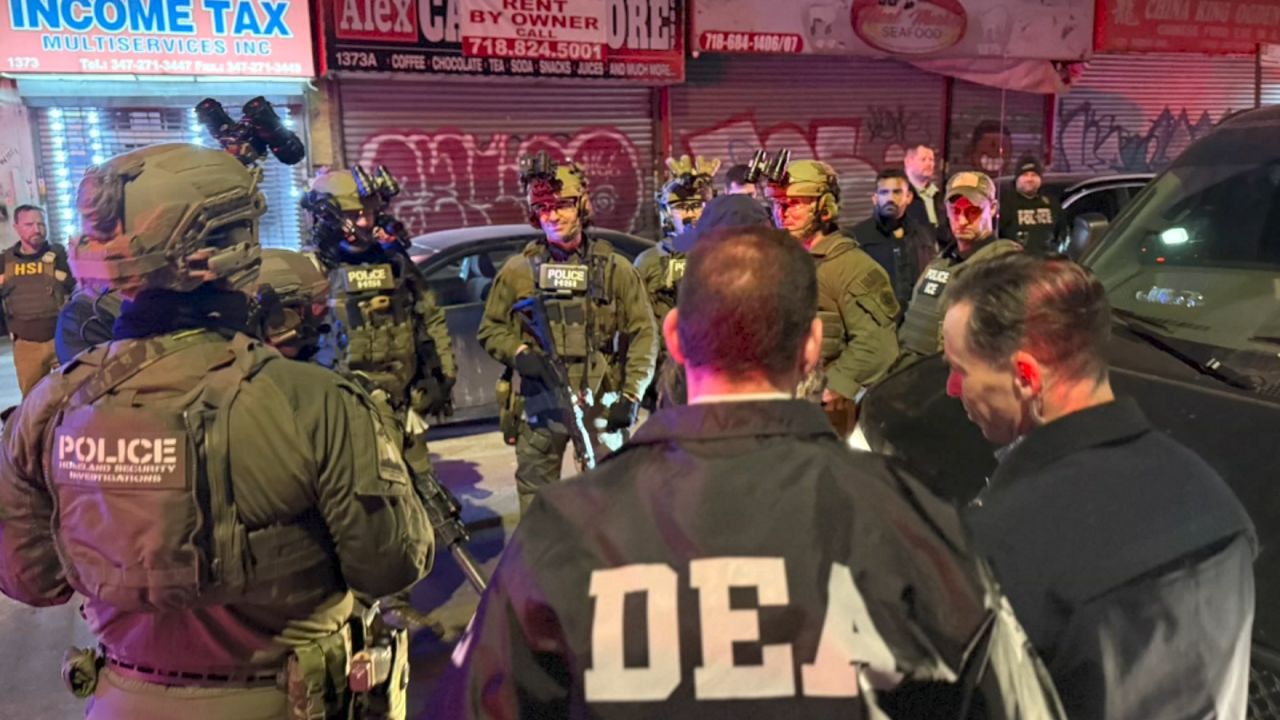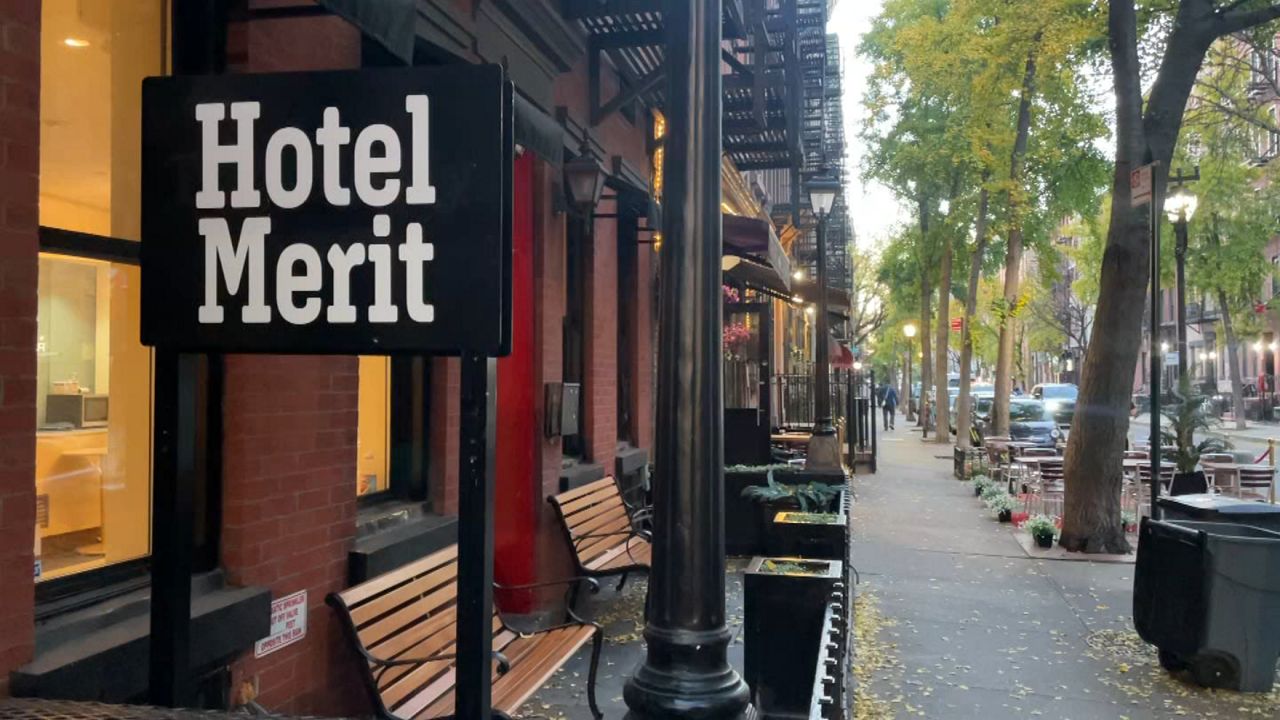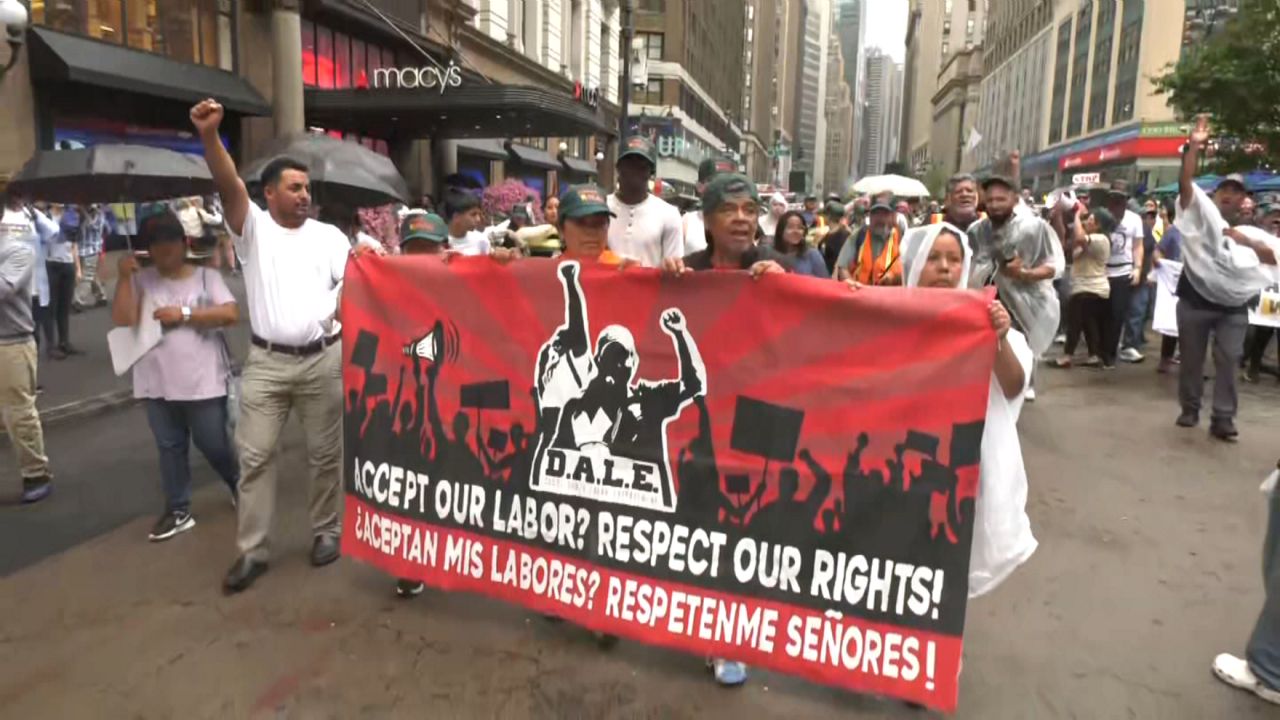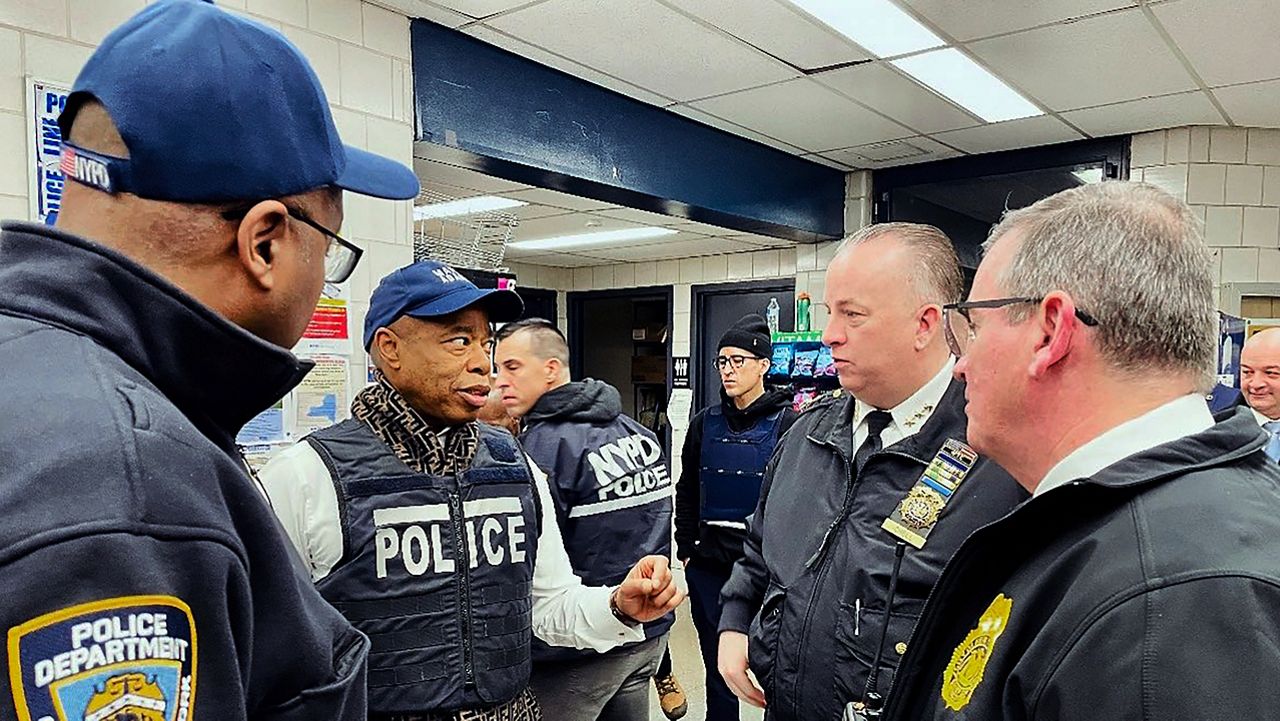A curfew went into effect Wednesday night for what the city says will “allow for more efficient capacity management for migrants in the city’s care.”
What You Need To Know
- The city is imposing an 11 p.m. to 6 a.m. curfew on the some 3,000 adult migrants at the shelter on Randall’s Island
- The added curfew at the site means roughly 86% of the city's migrant emergency shelters now have curfews
- The city currently has more than 64,000 migrant in its care, according to officials
Since the beginning of the year, there have been multiple fights between migrants and police or security at the Randall’s Island migrant shelter.
There have also been multiple knife attacks, one resulting in a migrant’s murder.
“For me, I think it is a good thing,” Christian Cortez, a migrant from Ecuador living at the shelter, said about the curfew.
NY1 spoke with several migrants who support the 11 p.m. to 6 a.m. curfew the city imposed on the some 3,000 adult migrants at the shelter.
“This way, we can avoid a lot of problems. And it also [doesn’t allow] for a lot of time in the streets,” Cortez said. “It’s a good order, it has its advantages and disadvantages,” said Vivian Panchon, a migrant from Ecuador living at the shelter.
The added curfew at the Randall’s Island site means roughly 86% of the city’s migrant emergency shelters now have curfews.
Immigration advocates like Murad Awawdeh, the president and CEO of New York Immigration Coalition, have concerns the policy will negatively impact a migrant’s opportunity to work despite work being listed as an exemption.
Some migrants NY1 spoke with off-camera agreed.
“That will then in turn have them in the street because they may have missed curfew or have them lose their job that they’re trying to save money to get into affordable housing,” Awawdeh said.
Besides work, exemptions include travel to school, legal appointments, medical needs and emergencies.
A migrant will need a pass from the site manager in order to qualify for an exemption.
“The solution that we propose to the city would save them $3 billion in shelter costs by providing people with vouchers to support them getting into housing,” Awawdeh said.
While migrant Daniel Maldonado searches for work to get out of the shelter system, he said this policy may bring some order to the shelter.
“The curfew is good for certain people who are doing a lot of bad things [on] the inside,” Maldonado said.
But he said he could face hurdles if an employer doesn’t give him paperwork, the proof he may need to get an exemption.
“They tell us that we have to enter at eleven o’clock at night, and if we don’t enter at that time, we will stay outside until five o’clock in the morning when we will have to enter again,” Maldonado said.
The city currently has more than 64,000 migrant in its care, according to officials.







